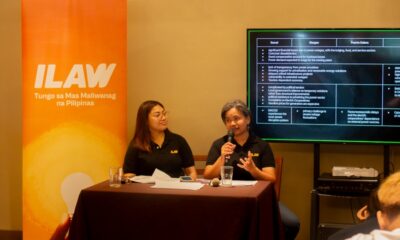Business
What is the Philippine Competition Commission?
If there is a government agency that safeguards consumer rights and ensures right pricing in the market like the Department of Trade and Industry (DTI), there is also an institution that protects fair market competition in the country.
And why does a fair competition in the market good for Filipinos?
When it is present, businesses compete and consumers benefit through lower prices, more product choices and better quality of goods and services.
On the contrary, without competition, there is no motivation to provide convenient and fast services to consumers and no reason to innovate products.
This is where the Philippine Competition Commission (PCC) comes in.
PCC is a government entity created to implement the national competition policy and attain the objectives and purposes of the Republic Act 10667 or the Philippine Competition Act (PCA) which took effect on August 8, 2015.
“PCC, now operating for two and a half years, is an agency directed to promote the well-being and efficiency of competition in the market for the benefit of consumers and businesses and it has jurisdiction over all competition-related issues,” said director IV of the Economics Office of PCC, Dr. Benjamin E. Radoc, Jr. in a public forum held at Kahuna Resort on August 30 in San Juan, La Union.
The agency ensures that a wide variety of goods and services remain affordable and of good quality as well as businesses to have access, at a reasonable cost, to supplies and inputs that they use for their operations such as raw materials, labor and even in financing.
“PCC looks into anti-competitive agreements which include any type of contract, arrangement, or understanding between or among businesses that fix process or manipulate bids,” he added.
The acts of businesses such as price fixing; limiting production by restricting output or by setting quotas; division of market and claiming dominance according to territory, customer demographics, sales volume or product type creating a monopoly; and settlements to fix prices at an auction are examples of anti-competitive agreements.
He said that these acts may be formal or informal, explicit (written or announced) or unstated and verbal or written.
Radoc also cited that a good example of their agency’s job is to look into the current issue of telecommunications companies like Smart and Globe which are independently competing and in the same way, transportation services like Grab and Uber, which is now a merged company.
This law covers any person or entity engaged in trade, industry, and commerce and applies to international trade and does not concern any arrangements between workers and employers and other activities affecting employment.
Moreover, the agency encourages the citizens to support their mandates by reporting any violation against this act.
At present, the agency has conducted six exhibits, information caravans ,and fora all over the country which included the exhibit launched at the second floor lobby of the City Hall in San Fernando, La Union, also on August 30.
The launching was attended by officials from partner government agencies like the National Economic and Development Authority, DTI, the Philippine Information Agency, and the local government unit of San Fernando through its Local Economic and Business Development Office.
The Philippines is one of more than 140 counties with a competition policy.
In the Association of Southeast Asian Nations (ASEAN) region, only Cambodia has not yet legislated its draft law.
For more details about PCC, Filipinos are encouraged to visit their website at www.phcc.gov.ph. (JNPD/AHFF/PIA-1)
































